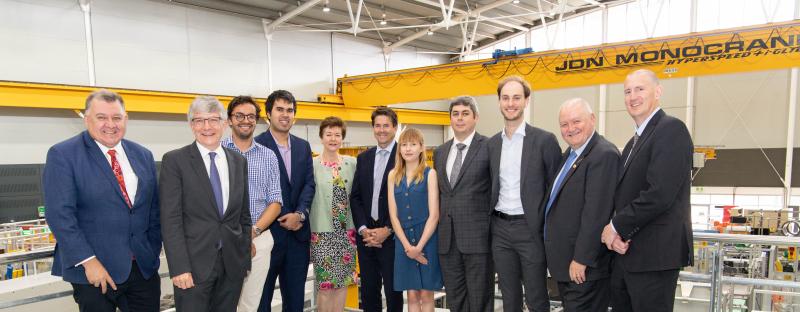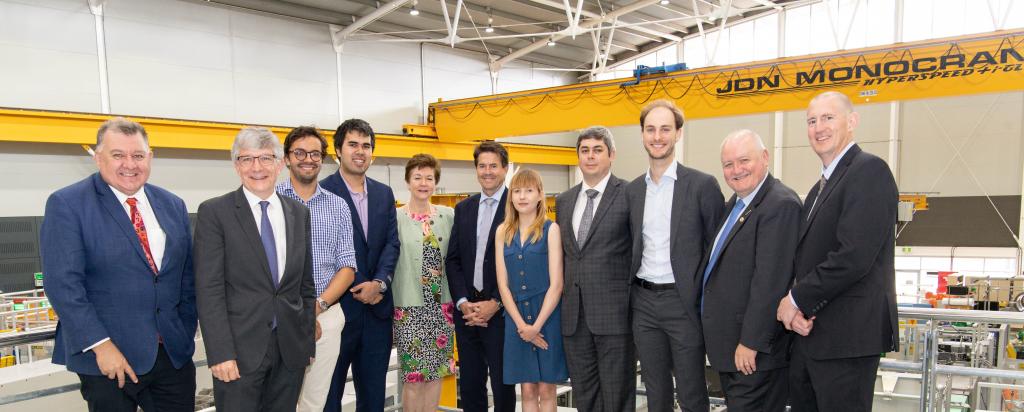

Published on the 9th December 2019 by ANSTO Staff
We’re looking to the future and finding it in talented students today.
“Our science and technology industries need the inquisitive; the innovative; the ingenious to shape the best tomorrow for us and our planet. That’s why we’re pleased to welcome our first cohort of Industry Foundations Scholarships recipients to the ANSTO Graduate Institute,” said Professor Andrew Peele, Director of the Graduate Institute.
The Institute is part of ANSTO’s Innovation Precinct and links all graduates together to create a network of Australia’s brightest young minds focused on the future.
Sponsored by the New South Wales State Government, scholarship recipients will have access to the expertise and technology needed to facilitate cutting edge discoveries in advanced manufacturing, health and the environment.
Here’s a quick overview of our recipients and their projects:
- Robert Mardus-Hall: Investigating the power and heat transfer characteristics of a salt-cooled, Very High Temperature Reactor (VHTR) design; currently under study at the Shanghai Institute of Applied Physics (SINAP) and KAIROS Power, to enable space exploration.
- Andrew Chacon: An in vivo dosimetry system for Neutron Capture Enhanced Particle Therapy (NCEPT) in order to verify patients of cancers of the brain and pancreas are receiving the right treatment.
- Amy MacIntosh: Developing an ecological framework for closure of offshore petroleum structures, in order to create a more sustainable environment.
- Andrew Pastrello: Developing a performance portable Monte Carlo neutron transport code for modern computer architectures including CPU, GPU and FPGA, to improve the performance of reactors like OPAL.
- Matthew Teusner: Improving the performance and sustainability of existing battery technology to advance the development of next generation lithium-sulphur batteries, creating a more sustainable use of energy.
According to Prof Peele, “The future is here and our graduates are leading the way.”
If you’d like to hear more about innovation at ANSTO, visit ansto.gov.au/innovation and sign up to our newsletter.